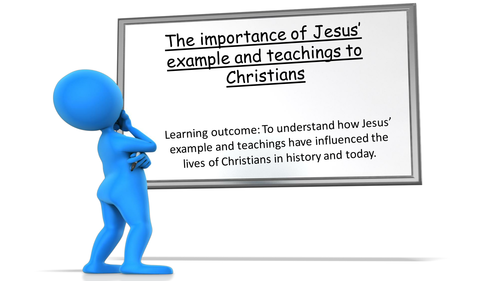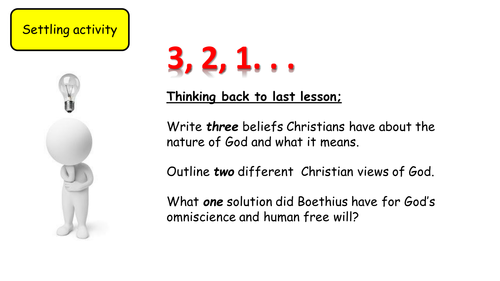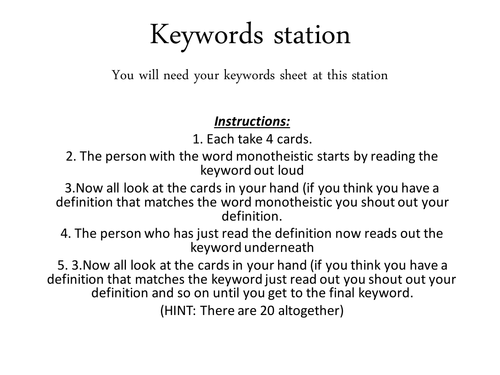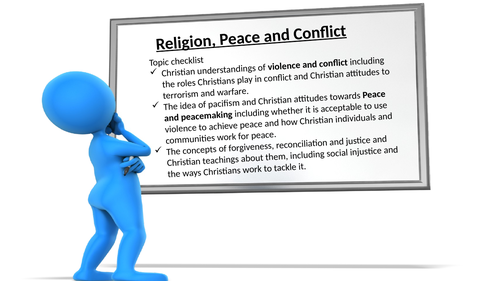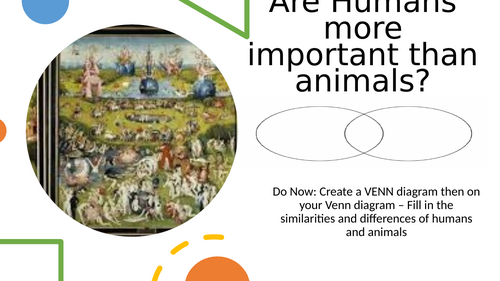
52Uploads
6k+Views
936Downloads
Religious education

OCR GCSE Christianity - The importance of Jesus' message
In this lesson pupils will learn about the Sermon on the Mount and how Christians have used this in practice (Mother Theresa, Martin Luther King Jr., and Blessed Oscar Romero)

OCR Christianity - The concept of God as trinity
Second lesson in the OCR GCSE RS Christianity unit beliefs, teachings and practices. This lesson introduces the idea of God as trinity.

GCSE OCR Christianity: beliefs and teachings - revision lesson
Here is a revision pack for the GCSE unit of work on Christian beliefs and teachings to accompany the assessment (attached).
It consists of 6 revision stations:
Keywords game
Nature of God (be the teacher challenge)
Genesis and the fall (full mark answer challenge)
Sin and Salvation (art task)
Jesus' example role play
Eschatological belief (AO1 + AO2 Bible story challenge)
All with hints and tips for students to self assess as they go through.
Students then have the opportunity to complete a R.A.G. review to see which areas they need to further focus their revision on

OCR GCSE RS religion, peace & conflict lesson 1
This is the first lesson in the philosophy and ethics GCSE unit: Religion, Peace & conflict. including a powerpoint presentation and case study.

How do we make Moral decisions
This lesson explores the big question ‘how do people make moral decisions?’
It introduces the learner to 3 ethical theories and helps them understand how these decisions could change the outcomes of ethical dilemmas.

What does it mean to be good?
This lesson explores the following objectives:
Describe different ways a person can be good
Explore different ‘good’ people and create a Good Place charter in a group
Evaluate why people choose to do ‘good’

Are the 10 commandments still relevant today?
In this lesson, learners will understand what the 10 commandments are and the context in which they were written
Evaluate their importance in society today

Are humans more important than animals?
This lesson explores the ethics of animal rights and Christian attitudes to the importance of animals

What is the point of being good? - Unit of work
This is a year 9 unit of work exploring ethical questions around the idea of the motivation for living a good life.
includes assessment and scheme of learning

is anything altruistic?
In this lesson, learners will;
Define the term ‘selfless’
Explain how good actions make people feel
Give reasons why even if a good act is rewarded it can still be good

Why are non religious people good?
In this lesson, learners will explore the idea of humanism and why humanists choose to be moral.

What is good in other cultures?
This lesson explores what good looks like in other cultures and asks students to compare and contrast the idea of good in our culture.

Are we good global citizens?
This lesson explores the theme of global citizenship and religious attitudes to stewardship.

What does it mean to be good - Unit of Work
This is a bundle of lessons exploring the ethical question of what it means to be good.

What happens when we die
This lesson asks learners to:
Define the term ‘afterlife’.
Identify and explain the difference between beliefs in the afterlife.
Make a judgement on others beliefs compared to my own.

Should we be good for future generations?
In this lesson, learners will:
Define the term ‘stewardship’.
Identify and explain examples of Stewardship.
Justify why we should be good.

Role Models
In this lesson, learners will:
Define the term ‘role model’.
Identify and explain examples of good people from History.
Justify why someone is a positive influence in society today.

What is the reward for living a good life?
In this lesson learners will explore what religious people believe about rewards in the afterlife.

What can be learned from Muslim and Christian Peacemakers
Explore the example and influence of those who make peace from the Sikh,
Muslim and Christian traditions.
Apply ideas such as influence or inspiration to their own views of the role
of religion in conflict.

